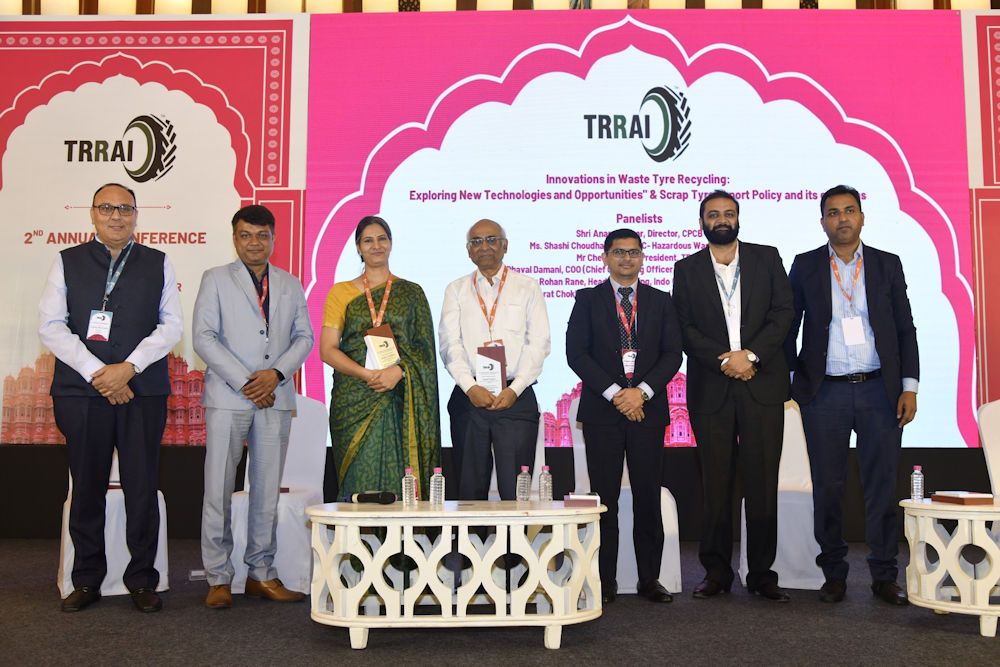The 2nd Conclave organised by the Tyre and Rubber Recyclers Association of India (TRRAI) brought together policy makers and industry stakeholders to dwell upon the challenges and opportunities due to paradigm shift after the introduction of EPR in India
Among the key takeaways included the importance of EPR policy compliance, technological advancements, and collaborative efforts to drive growth.
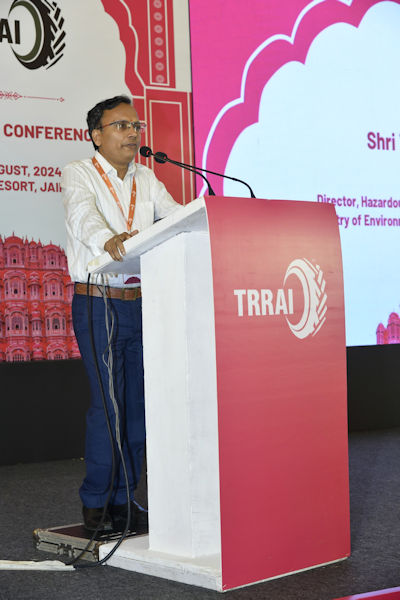
After the launch of the EPR, the government is focusing on EPR compliance. Moreover, the government has assured the objective of EPR compliance is to improve and upgrade the industry. “The industry was in bad shape three years ago as it was dominated by backyard recyclers, only few recyclers were formalised. But now the situation is altered as number of formalised recyclers increased drastically,” said Ved Prakash, Director, Hazardous Substances Management Division, Ministry of Environment, Forest & Climate Change (MoEF&CC), in his keynote address.
He urged the recyclers to implement latest technology in their operation and collaborate with tyre producers. “EPR is not against the industry but for the industry and government seeks support from all the key stakeholders to make it successful,”
He also urged the recyclers to maintain the utmost credibility in generating EPR certificates, strictly as per the EPR guidelines and treat certificates generated by them as share certificates or currency notes. At no time regulations should be compromised otherwise the whole exercise is wasted. If at any stage a discrepancy is reported in certificate generation the onus would be on both recyclers as well as tyre producers.
“The government objective is that only the formal recyclers will survive; those who engage in technology upgradation, implement EPR & SOP guidelines in letter and spirit and the others will shutdown their operations.”
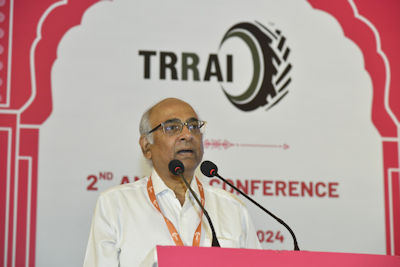
Anand Kumar, Director & Divisional Head, Waste Management, Central Pollution Control Board (CPCB) called on setting-up a dedicated industrial park for tyre producers, recyclers, pyrolysis plants as all are inter-dependent. Besides, such industrial park would achieve circularity as per objectives of EPR. The industrial park is proposed on the lines of the Ecopark planned for e-waste in Delhi.
According to Kumar, “In January 2024, an SOP for pyrolysis plants was introduced, all pyrolysis plants have to follow the SOP guidelines and National Green Tribunal (NGT) has given strong directions for its implementation and if any recycler is not following them, strict action will be taken against the plant.”
Rajasthan allows setting-up of continuous type pyrolysis plants
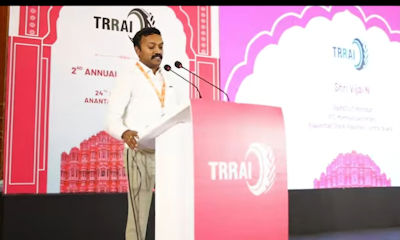
The guest of honour, was Shri Vijai N., Member Secretary of the Rajasthan State Pollution Control Board, Jaipur. Despite a busy schedule, he graciously attended the TRRAI conclave and shared valuable insights on the significance of proper waste disposal and recycling.
Notably, he highlighted the Rajasthan State Pollution Control Board’s pioneering initiative – the State’s first Integrated Resource Recovery Park, located at Tholai near Jaipur. This innovative project aims to support the circular economy by efficiently managing waste products.Due to the presence of high particulate matter leading to deteriorating climatic conditions in the National Capital Region, Rajasthan was the first Indian state to decide to restrict the opening of batch type pyrolysis plants way back in 2012.
As a policy initiative, the state government stopped allowing opening of fresh batch type pyrolysis units in the state. “We only allow new advanced continuous type pyrolysis plants though allowing the existing batch type plants to operate,” informed Shashi Choudhary, State Environmental Engineers/experts, Government Institute of Chemistry – Hazardous Waste, Rajasthan State Pollution Control Board (RSPCB) during a panel discussion.
As per the new SOP introduced by the Central Pollution Control Board in January 2024 for batch and continuous type pyrolysis plants, the state pollution control board directed the existing batch type plants to strictly implement the new SOP, upgrade and implement all safety measures and submit compliance reports by 31st August accordingly. “We have about 36 batch type plants operational in Rajasthan, and focus is on these units to upgrade their technology for the benefit of the industry and the EPR policy.”
Indian recyclers investing in innovation & upgradation
The tyre recycling and pyrolysis industry has made major strides in the last five years globally. India’s recycling industry has also matured and graduated to next level. “We now have wonderful innovative energy efficient machinery producers coming out of India for example earlier we had shredders with merely 1 ton per hour capacity but now 20 ton per hour capacity shredders are available, taking India’s recycling equipment onto the global map,” thinks Chetan Joshi, President, Global Affairs, TRRAI.
Indian tyre recyclers are no longer blamed for polluting the environment as they are constantly adopting new technology as per the EPR guidelines and SOP introduced by CPCB early this year. “Interestingly, certain Indian recyclers are trying to achieve parameters much above the guidelines of new SOP.”
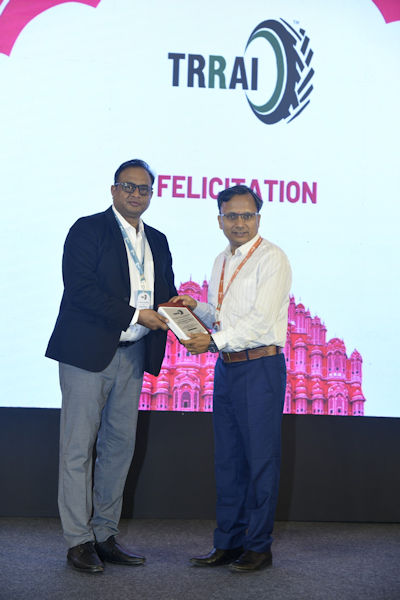
Indian recyclers are investing in upgrading their equipment in the areas of carbon handling, steel discharge, conveying systems, transporting carbon char from one place to another in both batch and continuous type plants. “Pyrolysis plants are now increasingly adopting gas storage, so that it can be converted to energy in the production process.”
Now, Indian recyclers have to look beyond producing products like oil and RCB in order to build capabilities to recycle and develop hi-end niche products. “Now Indian recyclers have to focus on developing complex grades having application for the specific requirements of the tyre industry.”
Today, the authorities continue focusing on bringing all the recyclers into the EPR ambit and caution the defaulters of penalisation. “Environment compensation will be imposed on defaulters in EPR policy returns and fraudulent generation of EPR credits, applicable to both producers and recyclers,” informed Satish Goyal, President, TRRAI during discussion.
According to him, “2022-23 EPR credits will be allowed to sell for the fulfilment of obligations of 23-24 and 2024-25, this facility will be available soon.”
Goyal also urged the recyclers to invest EPR money for technology upgradation to make the recycling process more environment-friendly.
The day-long conclave held on 24th August at Jaipur, Capital of Rajasthan. TRRAI has over 450 members with 240 members participated at the conclave.
















